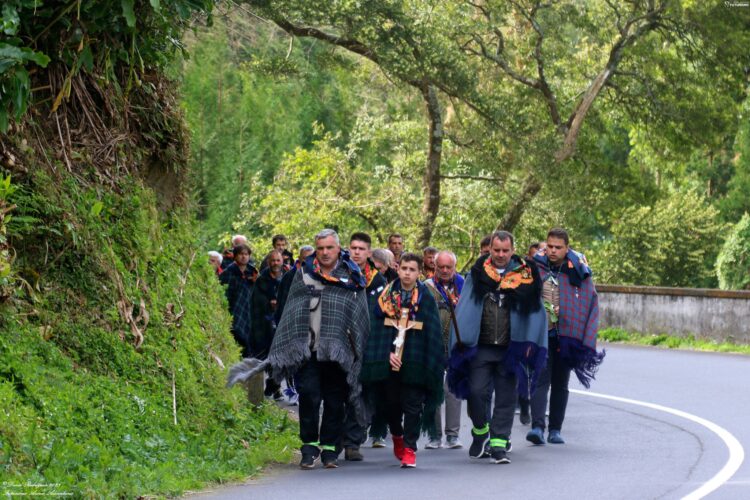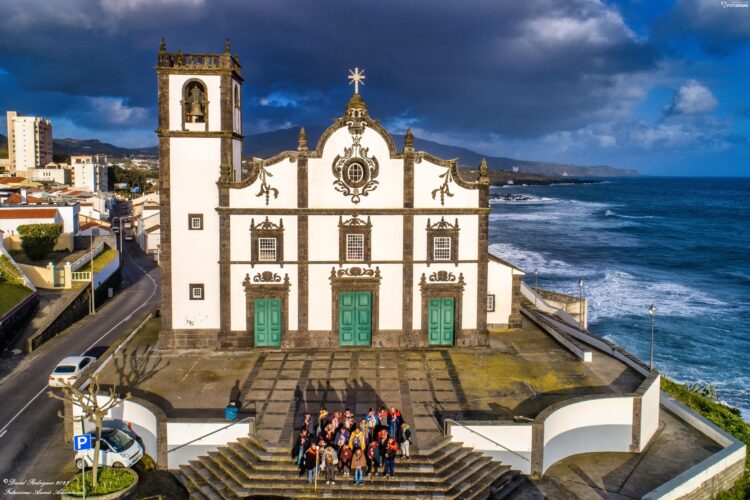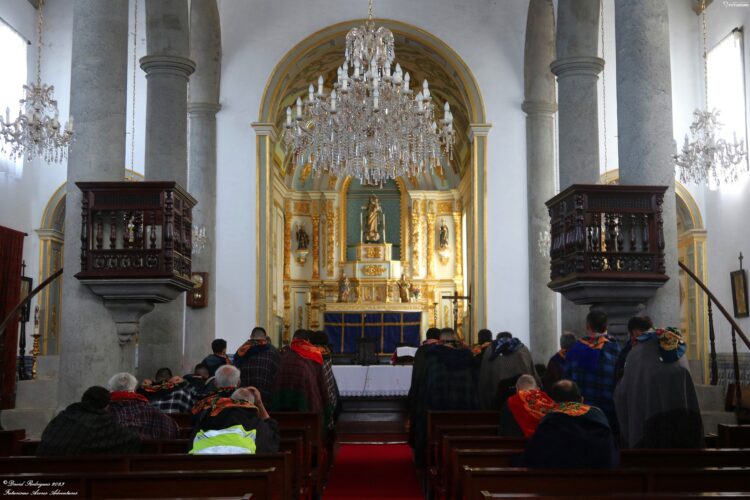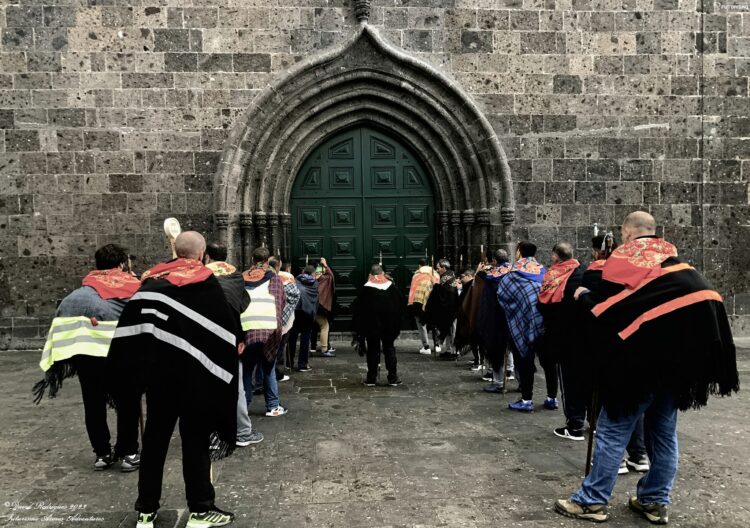Lenten Pilgrimages
Lenten Pilgrimages on São Miguel Island, Azores, are one of the most distinctive aspects of Azorean culture and religiosity, embodying a deep-rooted tradition that has endured for centuries, weaving together faith, community, and Azorean identity.

(C) David Rodrigues
Índice de conteúdos [ocultar]
Historical and Cultural Context
São Miguel Island, the largest of the Azores archipelago, is a land of natural beauty, shaped by the Atlantic’s influence and enriched by a vibrant cultural heritage.

(C) David Rodrigues
The Lenten pilgrimages are an authentic expression of this heritage, with origins that reach back to ancient times, possibly emerging in response to natural disasters or crises, as communities sought divine intercession to overcome challenges.
Structure and Ritual of the Pilgrimages
During Lent, pilgrims organize into groups, each following a unique itinerary that spans various churches and sanctuaries across the island.

(C) David Rodrigues
Preparation for the pilgrimage involves not only the physical aspects of the journey but also a spiritual process, with participants fasting and attending confession before setting out.
The attire worn by the pilgrims is symbolic: brown capes representing humility, staffs symbolizing support along the way, and shoulder bags carrying essentials.
These elements, along with rosaries and hymns, shape the ethos of the pilgrimage, marking it with a spirit of penance and reflection.

(C) David Rodrigues
During the walk, the group is organized in a three-row structure: the outer rows are composed of pilgrims, each led by a guide at the front, while the central row includes the master, the assistant master, the person responsible for prayers for souls, the intentions carrier, and the bearer of the cross.
The Journey and Hospitality
The pilgrimage route is marked by prayer, song, and contemplation, with pilgrims singing traditional hymns and praying the rosary.

(C) David Rodrigues
The hospitality of the communities along the way is a fundamental part of this tradition.
Families open their homes to welcome the pilgrims, providing food and shelter in a gesture of sharing and solidarity that strengthens community bonds.
Social and Spiritual Impact
The Lenten pilgrimages have a profound impact both on the pilgrims and the communities that host them. For participants, it is an opportunity for introspection and spiritual renewal, a walking retreat that allows them to reconnect with themselves and with God, away from daily distractions.
In the communities, the passage of the pilgrims is a meaningful event, bringing blessings and reinforcing cultural and religious identity.
This tradition fosters a sense of belonging and continuity, linking generations through the sharing of experiences and values.

(C) David Rodrigues
During this season, all residents and tourists are advised to be especially cautious on the roads, as the pilgrims travel on regional routes.
More Content on Pilgrimages
 Quick links and suggestions
Quick links and suggestions
Travel insurance with 15% discount for the Azores or another destination Click here to simulate >
Looking for trips to the Azores? See these promotions >
Rent a car in the Azores? The best rent-a-car >
Activities and Experiences during your stay? Check it out here >
See Whales and Dolphins? Book now online >
Have you had a canceled or delayed flight in the last 3 years? Receive your compensation here >


